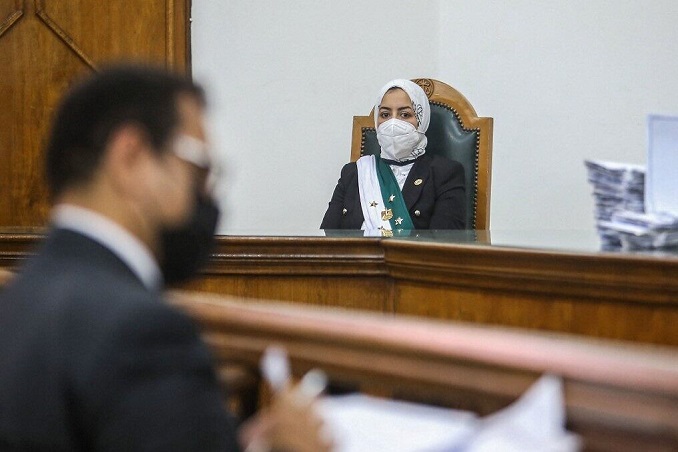Last updated on October 26th, 2022 at 08:20 am
![]() Egypt – Saturday marked history as Radwa Helmi became the first woman judge to preside over a hearing and sit on the bench of Egypt’s State Council, the top court in the country. Helmi was among the 98 women who were appointed last year to join the State Council of Egypt. The decision of their appointment to Egypt’s one of main judicial bodies was by President of Egypt Abdel-Fattah el-Sissi.
Egypt – Saturday marked history as Radwa Helmi became the first woman judge to preside over a hearing and sit on the bench of Egypt’s State Council, the top court in the country. Helmi was among the 98 women who were appointed last year to join the State Council of Egypt. The decision of their appointment to Egypt’s one of main judicial bodies was by President of Egypt Abdel-Fattah el-Sissi.
These female judges have undergone and cleared an intensive training course to obtain judicial traditions and skills. The President of the State Council Mohamed Mahmoud Hossam Eddin said they are “familiar with issues related to national security, anti-corruption and national projects”.
“The 5th of March has become a new historical day for Egyptian women,” said the head of the National Council for Women (NCW), Maya Morsi. The move also comes ahead of the International Women’s Day that is marked on March 8. It is a special celebratory moment for Egyptian women as they have been fighting for years an uphill battles to secure their rights.
Related Posts
Scores of women lawyers have been in Egypt but Helmi became the first to preside over a hearing at country’s top court. Tahany al-Gebaly was the first appointed judge to Egypt’s Supreme Constitutional Court in 2003. The post was held by Gebaly for a decade before she was removed in 2012 by Mohamed Morsi, the Islamist president at that time.
Though there is no law in Egypt that bars women from climbing up the judicial ladder to become justices in the country, the rather conservative Muslim majority nation has been dominated by an ‘all-men tradition’.
Since Egypt was founded in the 19th century as a modern state, women in the country witnessed discrimination and experienced being marginalized. Only in 1956 did Egyptian women gain the right to vote and also run for public office. But still, their rights at a personal level were always overlooked and rejected. Currently, women hold approximately a quarter of cabinet posts and 168 seats in the 569-member parliament.

